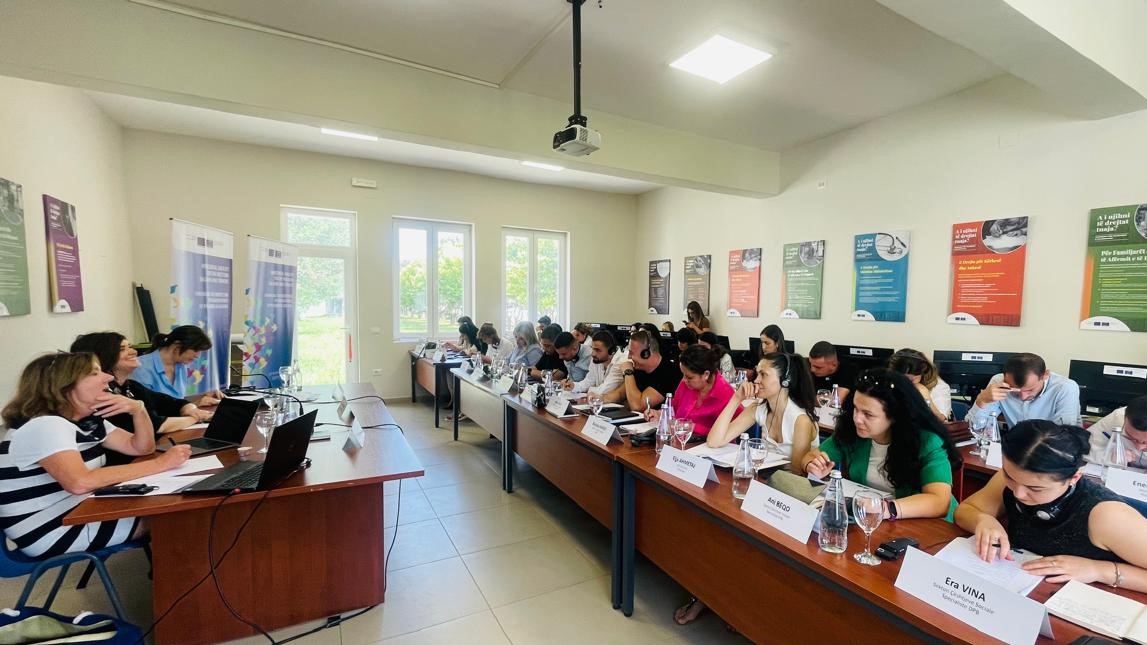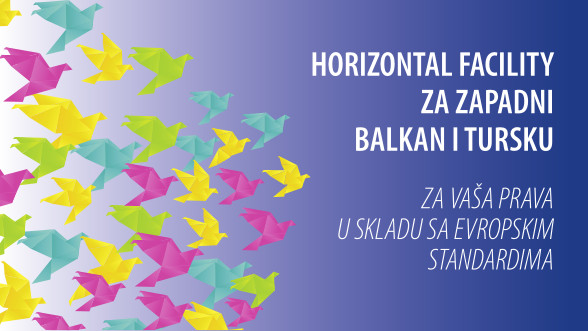One of the main priorities of the programme is to strengthen safety and security in the Western Balkans Beneficiaries by improving management and rehabilitation of prisoners, with a particular focus on violent extremist prisoners and other marginalised and vulnerable prisoners at risk of radicalisation. Through multiple level interventions, the actions are continuing to promote and reinforce co-operation, professional networking and exchange of knowledge and best practices between prison, probation practitioners and other stakeholders active in the process of improving the protection of human rights of persons deprived of liberty.
A regional conference on “Programmes and avenues ensuring reintegration of violent extremist prisoners and other vulnerable and marginalised prisoners at risk from radicalisation in the Western Balkans” was held in Tirana, with the participation of 50 professionals from the Western Balkans. They represented various sectors including penitentiary, social welfare and protection, adult education, employment services but also civil society organisations active in preventing and countering violent extremism.
The new methodology for conducting police interviews and operational procedures for policing public gatherings was discussed at the meeting of 55 most senior police officials at their 3rd annual co-ordination meeting. Police managers from 17 police agencies in Bosnia Herzegovina affirmed their commitment to ensure that all officers within their charge better uphold individuals' rights to freedom of expression, peaceful gathering, and association.
A working group of experienced prison officials and senior representatives of the Directorate for the Execution of Sanctions in North Macedonia met in Skopje to discuss the regulations of the Prison Police intervention teams. Introduced as a novelty by the latest amendments to the Law on the Execution of Sanctions from March 2024. These teams are designed to increase the efficiency of the Prison Police and enhance security within prison establishments in North Macedonia.
A specialised training for the National Preventive Mechanism and the Ministry of Justice monitoring officers was organised in Montenegro. The training session focused on addressing communication skills of monitoring officers when interacting with individuals with intellectual disabilities and dementia. This was the first opportunity for the monitoring officers to receive training on this topic, which is particularly important for their work, as both institutions regularly visit facilities housing these vulnerable groups.
In Serbia, the programme assisted a new, comprehensive, and structured re-integration programme for persons serving long prison sentences. It was presented to treatment prison officers from Central, Western, and Northern Serbia. Presentations were organised in Novi Sad and Belgrade and gathered more than 40 treatment officers and ten commissioners from the local Commissioners’ Offices.
The programme is helping domestic prison authorities in Albania to introduce ‘Trauma Informed Therapy’ and ‘Cognitive Behaviour Therapy’ in the Albanian prisons. Two trainings in the respective topics were held at the Training Center for Prison staff, in Tirana bringing together psychologists and social staff, as well as representatives from the Directorate General of Prisons. The first training covered the principles of trauma-informed practice and post-traumatic emotional growth in a prison environment, with a specific focus on women in prison. The second training included an overview of ‘Cognitive Behaviour Therapy’ theory and its application related to different mental health disorders.



